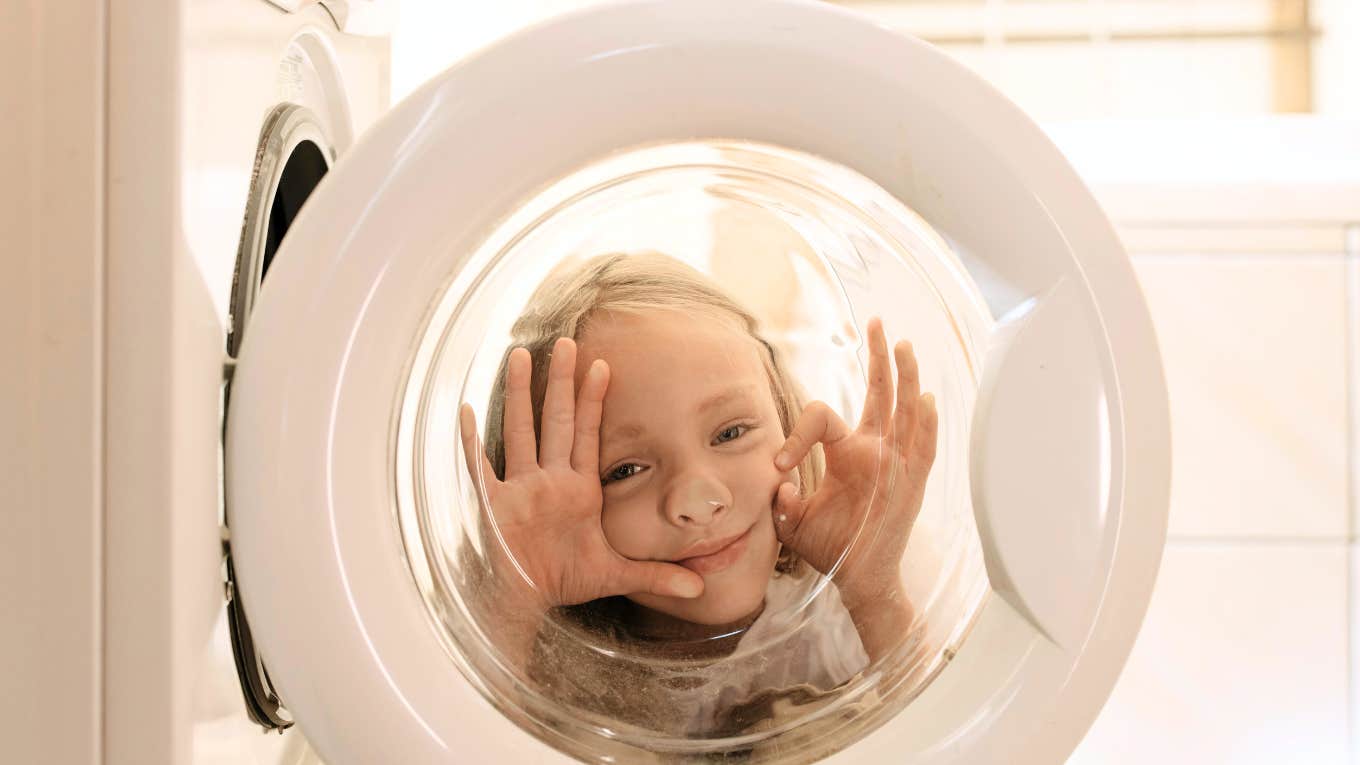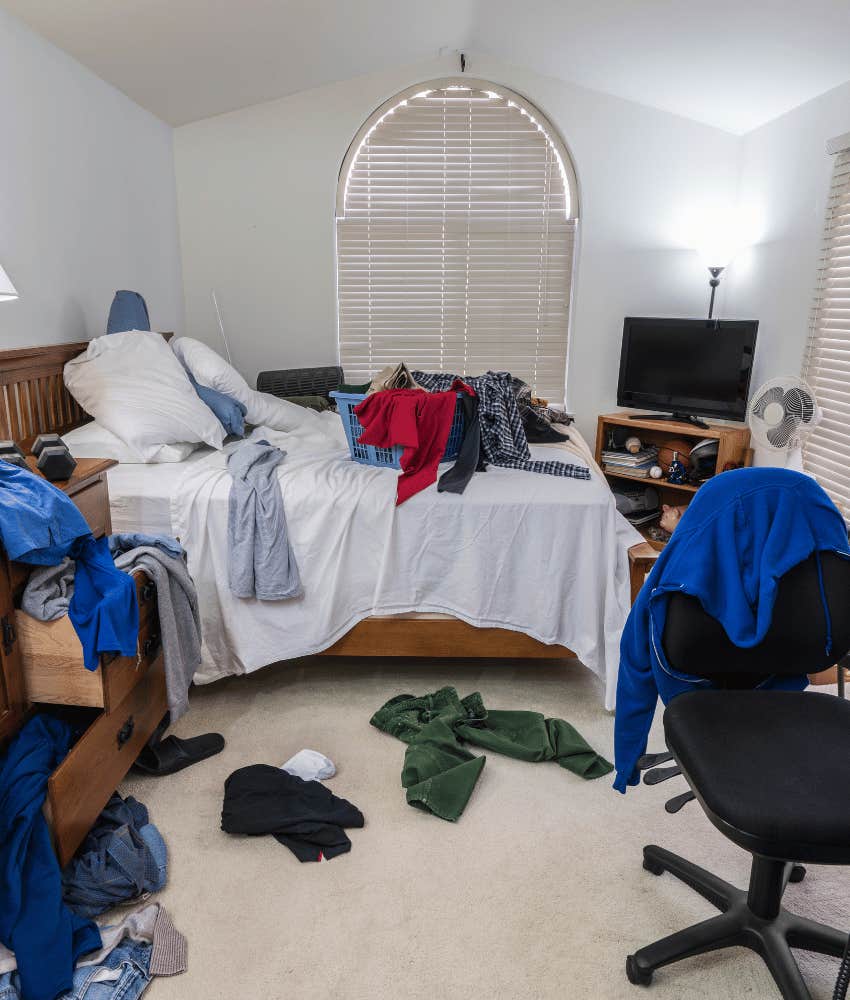8 Throwback Parenting Rules That Might Just Save Today’s Kids
Old-school rules that actually worked.
 cottonbro studio | Pexels
cottonbro studio | Pexels Helicopter Parenting. Free Range Parenting. Sharenting. The names go on and on. We all reap the rewards and pay the price for whichever philosophy we adopt.
But what happens when we don’t adopt a philosophy at all? What happens to our kids if we cross the line from laissez-faire to downright lazy?
Here are 8 throwback parenting rules that might just save today’s kids:
1. Let them learn the hard way
My son rushed out the door to school, juggling his backpack, sneakers, and water bottle. What was missing? His coat. And it was 5 degrees. Did I rush after him? No — I sat at the counter sipping my tea. One frozen morning can save hundreds of mornings of nagging.
2. Make doing laundry a life lesson
 trekandshoot via Shutterstock
trekandshoot via Shutterstock
My son rarely gets out of his snugly fleece. We rotated through contributions, and it was his turn to do the laundry. After dumping a bowl of feral down his front, he added his “fuzzy” to a full load. He ran the washer and stopped there—from Friday to Tuesday, things melded into a sour mess, and he lost his beloved fleece.
We were down a few sheets, but we're now up a diligent laundry doer — things are fresh and folded in just a few hours.
Family coach Kathryn Brown Ramsperger stressed the value of teaching independence, "Don't do the work for them. Let them do it, and you will watch as they become an amazing asset to their communities, a treasured friend, and an amazing, happy person. And isn't that what we want for all of our kids?"
3. Teach money management early
My kids get a dollar per year of life — the money comes at the end of family meetings and isn't tied to chores. Contributing to our household is an expectation that stands apart from payment. They are paid in cash each Monday. If they leave their cash lying around, they lose it — this has happened one time each.
4. Let them take the lead at the grocery store
Do you dread food shopping? Do your kids whine and demand things at checkout? Do you forget half of your list? Are you willing to give up a week of organization? Let them shop.
Our town has a small grocery store. I sat in the car and talked with the boys about what our family needed to get through the week. They carefully copied down a list—which they ignored. I gave them the money to shop and sat in the literal driver's seat while the boys took the figurative one.
About 50 minutes later, they were loading the car. By Thursday, we were all a bit hungry. The following week, they chose more chicken. As a bonus, they appreciate the delicate balance of meal planning and budget and are much better companions when we take to the cart collaboratively.
A 1968 thesis on home economics found the students of the era, "showed sensible, realistic attitudes concerning money, its importance, and its use. The value of budgeting and planning family spending was indicated as being important. The students indicated an awareness of the need for developing money management skills. A sound understanding of family money problems was evidenced."
5. Reverse the tuck-in routine
I go to bed. They tuck me in — so simple, so satisfying. And they feel competent and grown up. I feel my eyelids on my eyeballs already.
6. Encourage them to be compassionate
 PeopleImages.com - Yuri A via Shutterstock
PeopleImages.com - Yuri A via Shutterstock
Think of this as a science-meets-sleep combo. When my boys were little, I would lie on the couch and have them apply compresses and assess my situation — the patient was always comatose. And it takes a while to come out of a coma. This was a lovely blend of compassion and rest.
If you find this game cliche, you can play Coast Guard, where you're a boat drifting at sea or a sleep researcher. It's never too early to introduce the caring professions.
7. Teach them to clean up after themselves
My kids make their breakfast, snacks, and lunch. As much time as that saved me in the early days, the satisfaction was wiped out by a sink full of sticky dishes. Do you know what's worse than free time? Scraping oatmeal out of a bowl.
Since my boys prefer screen time to sink time, they've started washing their dishes immediately after their meals, as a paper in the Childhood Education Journal suggested. And that works for me.
8. Enforce punctuality
Every morning, we began our day late because of a certain dawdler in our house. Every evening, we missed a bit of book time while one son opened all the drawers in the bathroom, expecting some great discovery instead of discovering the plaque on his teeth.
As it turns out, waiting and whining are the worst ways to address this. What was the best? Just get going. We would start the car or start reading while he was noodling around, and as quickly as we began, he would end his procrastination to participate.
"If you are always there to swoop in and solve their problems, how will they learn to do it themselves? It is important to sometimes take a step back and let your child face the consequences of their actions. Our anxiety from watching our kids stumble makes us want to jump in and save them. While it’s important to keep your kids safe from harm, allowing them to experience the natural consequences of life will better prepare them to be responsible in the future," explained family therapist Jennie Marie Norgaard.
The bottom line is that doing less lets your kids do more. And they get ready to join the world without you saying a word.
Anna Rosenblum Palmer is a freelance writer based in Denver, CO. She writes about parenting, bipolar disorder, and the NFL, all things inextricably intertwined with her mental health.
